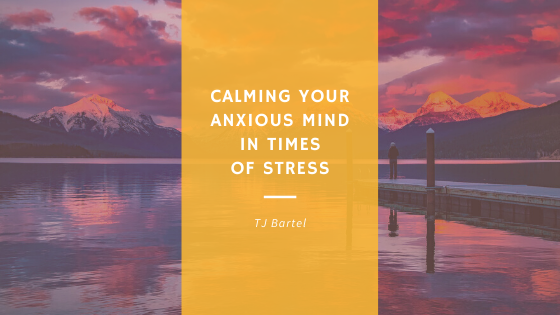Everywhere we turn we hear about the damaging effects of stress. Here are some powerful tools you can use to help yourself move into a state of greater strength and calm when you feel stressed.
#1 – Display Compassion and Being of Service
In many instances, stress is brought about by continuously worrying about one’s own circumstances. These thoughts might be overcome by demonstrating genuine compassion for others. You can quickly and effectively move yourself out of worry by volunteering at a local church, homeless shelters, soup kitchens or second-hand shops. Helping others in need allows you to take your mind off of your own problems. You might be surprised by how inspired you will feel focused on individuals in greater need than you cope with their trying circumstances. As H. Jackson Brown Jr. once said, “Remember that the happiest people are not those getting more, but those giving more.”
#2 – Connect With Others
Oftentimes, people facing excessively stressful times could benefit from connecting with others. Connecting usually implies more than saying “hello” and “goodbye,” or talking via social media with someone. Establishing a true connection typically requires people to spend quality time with them. Yet even simply choosing to say hi to strangers while you are out can lift your mood. University of British Columbia psychologist Elizabeth Dunn and her colleague Gillian M. Sandstrom discovered that even short conversations in line at Starbucks or in elevators can lift our moods.
But often we need something more. Individuals coping with significant stress will find greater benefits by engaging in deep conversation with their spouses, children, and other close relatives or friends and partake in activities with these loved ones. Personal connections often bring about a sense of comfort and tranquility.
#3 – Practice Breathing Exercises
Stress is just an accumulation of energy that has nowhere to go. It piles up and feels heavy in the body. Breathing is a free and powerful way to move energy. Calmness-inducing breathing exercises don’t have to be complex. Simply inhaling and exhaling can expel a great deal of tension. Focusing on slow, deep, and intentional breaths allows you to put your mind at ease and distract you from any stressful thoughts you are experiencing. I recommend inhaling for 10 seconds and exhaling for 10 seconds. Try this while you drive, shower, before rising in the morning or before each meal. Just a few minutes of focused breathing every day can have a remarkably positive impact on your sense of calm.
#4- Listen to Music
Music can often elicits positive emotions. Physical and mental health care professionals recommend that stressed individuals listen to their favorite tunes. That said, these experts also suggest that soothing or soft music might clear their minds and calm their nerves with greater efficiency than louder, more aggressive genres. If the songs you choose are ones you like to sing along to that’s even better as it let’s you breathe while you listen (see tip #4). Music that makes you want to get up and dance is also good as movement is another great way to move energy.
#5 – Write
A lot of people might have a difficult time expressing themselves through spoken word. For those who find it hard to express emotions, stressful feelings can pile up. Under such circumstances, writing might provide an avenue to release these feelings in a productive and ultimately soothing manner. Journaling is simply getting your feelings on paper without editing yourself. The purpose isn’t to write a masterpiece, but to simply act as a release valve. For the more creative types, organizing your thoughts into poems, song lyrics or short stories can help. But what’s most important it to just wrote – imperfectly.
#6 Choose Relaxing Activities
Sometimes, a stressed mind needs some form of diversion. Such diversion might be found by engaging in a relaxing activity, depending on what relaxes you personally. The key factor is to become involved in something that takes your mind away from the current stresses it is focusing on and enjoy living in the moment. Downtime with your favorite TV show, or playing with a pet, mowing the lawn, or even cleaning the house, or folding clothes can create a relaxing diversion. So can cooking or hobbies like stamp collecting, making puzzles, or painting.
What matters most is choosing some strategy to help you deal with the stress before it becomes chronic. Life is not meant to be endured, so make a commitment to shifting the energy as soon as you notice the stress is rising to unhealthy levels.
In conclusion, remember that your most precious commodity is not money, time or popularity. it is energy. When you have a high amount of energy you typically feel joyous, friendly and productive. When your energy is low, you feel sluggish, unproductive and out of balance. One of the biggest energy suckers is drama. This is why I tell my students and clients to “drop the story and move the energy.” The keys to moving energy are breath, movement, sound and visualization.
